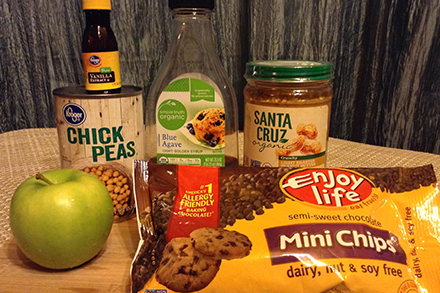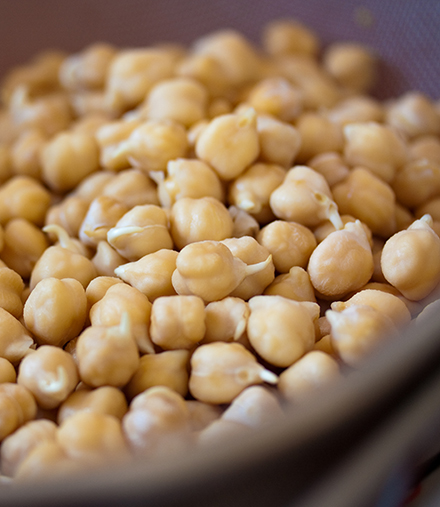2016 is the International Year of Pulses, and to help celebrate we’re sharing a sweet twist on a savory treat.
One pulse—the chickpea—is perhaps best known for its starring role in hummus, a traditional Middle Eastern dip. With a mild, almost buttery taste, chickpeas go as well with peanut butter and honey as they do with lemon juice and tahini.
This easy-to-make dessert hummus is reminiscent of raw cookie dough in both texture and taste, and this recipe can be modified for special dietary needs, including vegan and allergy.
Ingredients:
- 1 can of chickpeas, drained and rinsed
- 3-4 tablespoons of peanut butter (or other nut butter)
- 3-4 tablespoons of agave nectar (or honey)
- 1/3 cup chocolate chips (choose dairy-free for vegan recipe)
- 1-4 tablespoons water (may also use milk, almond milk or coconut milk)
- 1/2 teaspoon vanilla
- Dippable food of choice—consider apples, graham crackers, pretzels, cookies
Directions:
- Combine chickpeas, peanut butter, agave and vanilla in a food processor and process until smooth.
- Add water, milk or non-dairy milk and continue to blend until desired consistency is reached.
- Stir in chocolate chips.
- Serve with favorite dippables and enjoy!
Pulse Points:
- Dried seeds, pulses are members of the legume family. The most common pulses include edible beans, dried peas, lentils and chickpeas, also called garbanzo beans.
- Pulses are highly nutritious. They contain proteins, micronutrients and B vitamins.
- Farmers can eat and sell what they grow, so pulses contribute to both income and food security.
- Livestock can feed on post-harvest crop residues, such as stalks, stems, leaves and seed pods, and ultimately enrich the soil with their manure.

